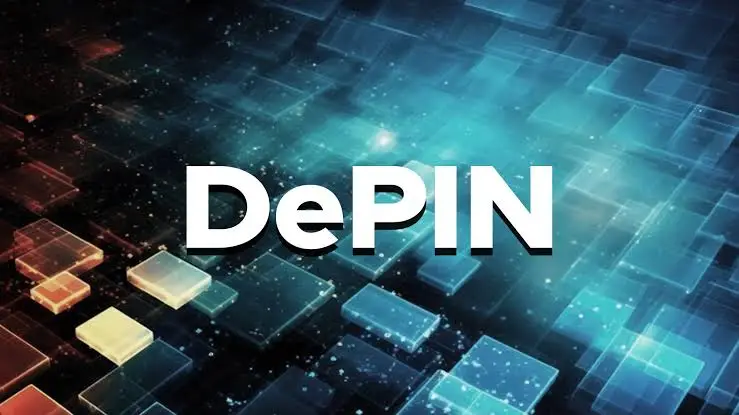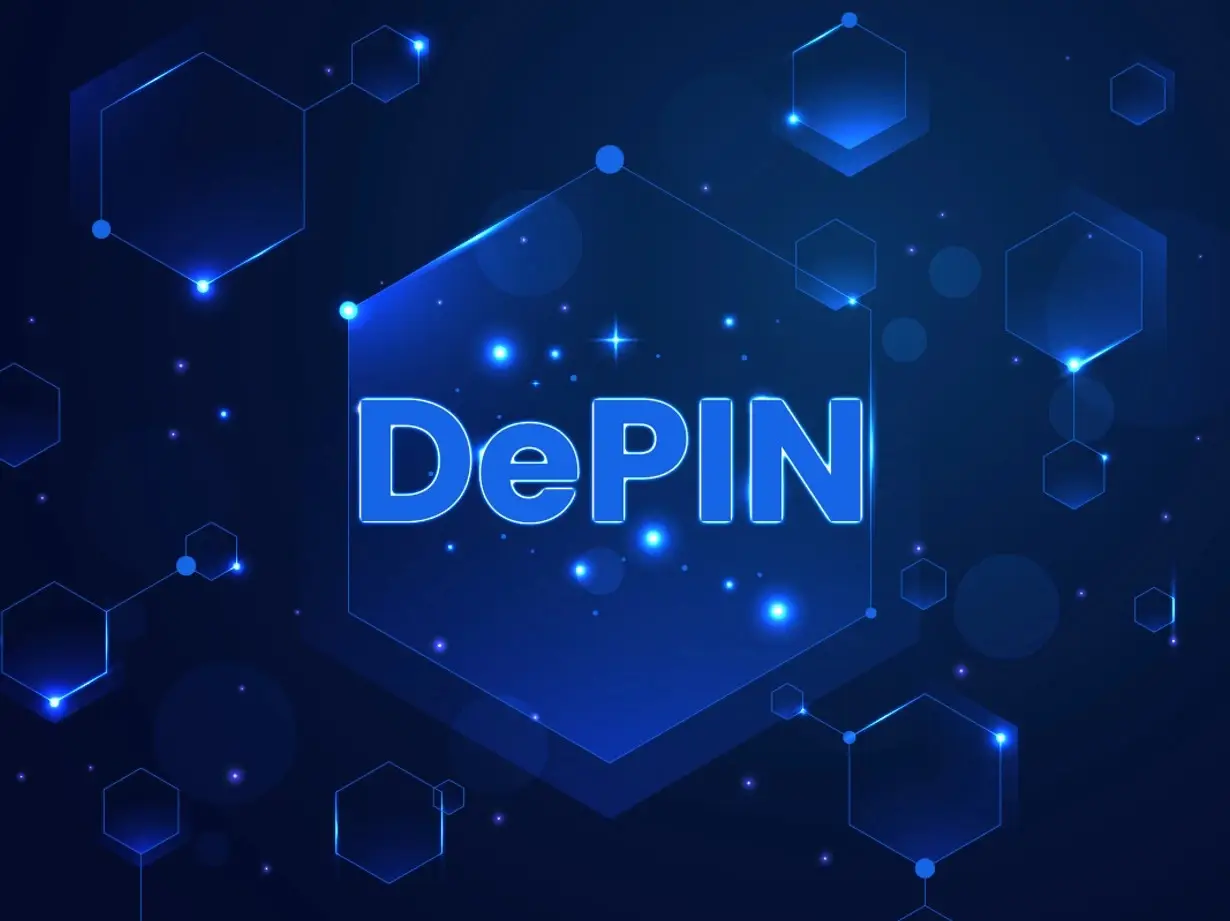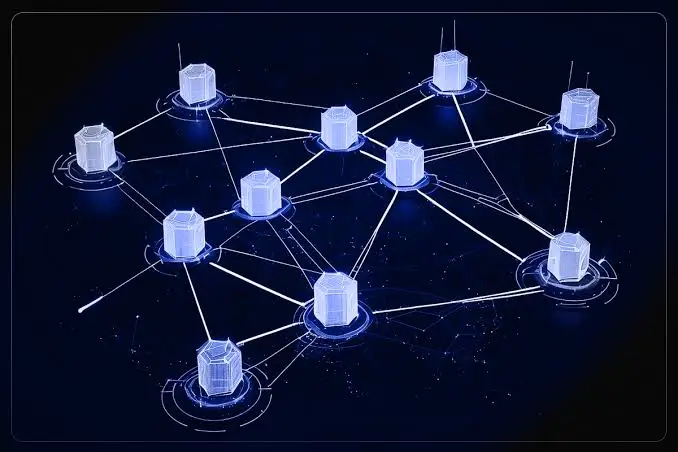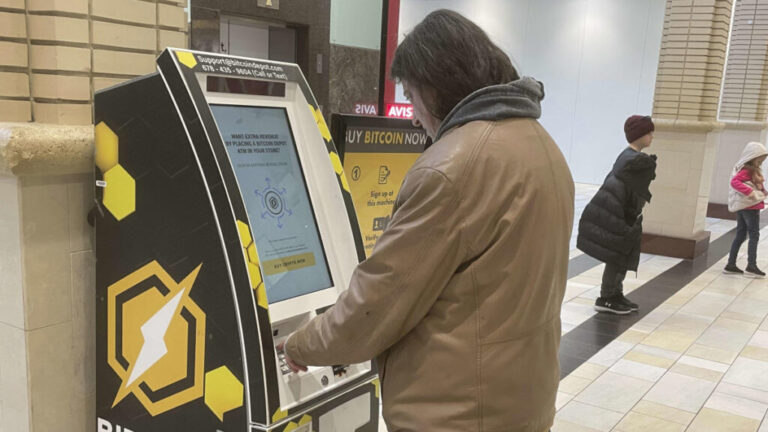
Lufthansa, Deutsche Telekom Adopt DePIN Blockchain Nodes to Power Peaq Network
Lufthansa and Deutsche Telekom, two of Europe’s most influential companies, have joined the decentralized physical infrastructure network (DePIN) movement by launching blockchain nodes on the Peaq network. This move marks a significant shift in enterprise adoption of decentralized technology, highlighting the growing relevance of DePIN blockchain nodes in powering real-world infrastructure and services.
DePINs, or decentralized physical infrastructure networks, are a groundbreaking solution for bridging decentralized technologies with physical systems, creating an environment where businesses and individuals can leverage both digital and real-world resources. The adoption of DePIN blockchain nodes by Lufthansa and Deutsche Telekom signals an exciting new phase for enterprises embracing decentralized infrastructure.
What Are DePIN Blockchain Nodes?
DePIN blockchain nodes are pivotal to the operation of decentralized networks. In simple terms, a node refers to a computer that helps maintain a complete copy of a blockchain’s ledger and verifies transactions on the network. These nodes contribute to the security and decentralization of the blockchain, ensuring that no single entity holds excessive control over the system. By adopting DePIN blockchain nodes, enterprises like Lufthansa and Deutsche Telekom are helping secure the network while participating in a decentralized future.
Peaq, a layer-1 blockchain network designed for DePINs and real-world assets (RWAs), has become the hub for major companies seeking to integrate blockchain technology into their operations. Lufthansa’s Innovation Hub, Deutsche Telekom, Bertelsmann Investments, and the Technical University of Munich (TUM) have all launched Peaq nodes, with a combined market valuation of over $170 billion across their respective enterprises. The significance of such established entities running DePIN blockchain nodes cannot be overstated.
Leonard Dorlöchter, co-founder of Peaq, emphasized the importance of this adoption, stating, “Having some of Europe’s — and the world’s — most innovative and forward-thinking enterprises operating DePIN blockchain nodes on our network is a testament to the impact that decentralized technology can have on industries beyond just tech. This move will inspire more collaborations and advancements, not just on Peaq but across the entire DePIN space.”
Driving the Future of Infrastructure with DePIN Blockchain Nodes
The concept of decentralized physical infrastructure networks represents the next big leap in the integration of Web3 technologies with real-world operations. DePIN blockchain nodes have the potential to revolutionize industries by decentralizing control and offering enhanced security for large-scale infrastructure systems. Whether it’s telecommunications, transportation, or energy grids, the decentralized nature of these nodes means that more players can participate in the infrastructure’s governance and operation, reducing the risks of centralization and single points of failure.

Lufthansa’s interest in DePIN blockchain nodes has much to do with the airline’s continuous push toward technological innovation. Steffen Boller, Tech Lead at Lufthansa Innovation Hub, highlighted the potential applications for the airline industry, particularly in gathering community-sourced flight tracking data. Boller pointed to Peaq-based DePIN projects like Hyperway and Wingbits, which focus on avionics, as examples of how decentralized networks could reshape airline operations.
Deutsche Telekom, another powerhouse in the telecom sector, has long been at the forefront of blockchain experimentation. By launching DePIN blockchain nodes, the company is positioning itself as a leader in decentralized infrastructure, particularly as demand for decentralized connectivity solutions increases.
The Industry’s Next Big Use Case
The rise of DePIN blockchain nodes is not limited to Lufthansa and Deutsche Telekom. A recent report by Web3 investment firm MV Global predicts that DePINs could become the industry’s next trillion-dollar opportunity. The report noted that DePIN blockchain nodes will likely play a crucial role in onboarding new users to the cryptocurrency and blockchain space, as the demand for decentralized solutions continues to grow.
“Decentralized infrastructure is rapidly evolving, and we are already seeing enterprises realize its potential,” the report stated. “DePIN blockchain nodes offer companies the ability to integrate decentralized connectivity solutions directly into their operations, opening the door for new use cases and revenue streams.”
The adoption of DePIN blockchain nodes isn’t just about integrating cutting-edge technology; it’s about creating a more equitable and distributed infrastructure. By decentralizing the control of essential systems, DePINs ensure that no single entity or group of entities can dominate or manipulate the network. This level of decentralization increases the reliability, security, and scalability of the systems in which they are used.
Expanding DePIN Use Cases Across Industries
The enthusiasm surrounding DePIN blockchain nodes is evident in the growing number of projects leveraging decentralized networks. Solana, one of the most prominent blockchain ecosystems, has seen a surge in DePIN activity. In May 2024, Kuleen Nimkar, Solana Foundation’s DePIN lead, noted that the network was seeing a “ton of up-and-coming DePIN projects” focused on decentralized infrastructure.
Meanwhile, Helium Mobile, a decentralized wireless network provider, recently announced expanded coverage and partnerships with third-party hardware manufacturers, further demonstrating the versatility of DePIN blockchain nodes.

With Peaq’s mainnet launch expected later this month, the stage is set for even more enterprises to follow Lufthansa and Deutsche Telekom’s lead. The participation of these global giants shows that DePIN blockchain nodes have already transitioned from a niche concept to a mainstream solution for enterprises seeking greater control and security over their infrastructure.
As the DePIN sector continues to grow, we can expect more companies to adopt DePIN blockchain nodes and explore new ways of integrating decentralized infrastructure into their operations. Whether it’s telecommunications, transportation, or aviation, the future of decentralized infrastructure is rapidly unfolding, with blockchain nodes at the heart of this revolution.
Get more from The Bit Gazette



